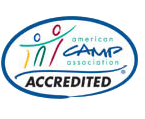
We want to say thank you to, David Grady – AB7 (SCDD Region 7), for bringing this advocacy announcement to our attention. There are new policies taking effect since Senate Bill 1093 has passed in CA. It’s part of our mission here at Camping Unlimited to help support our camper and family communities to find the best services available to live happy and productive lives. Read on to find out more about the new law regarding ILS’s (independent living services) and see how you can benefit today! Here’s the announcement from the State Council on Developmental Disabilities. Download the PDF version here.
You Can Get Independent Living Services (ILS) Even if You Live at Home with Your Family!
For a long time adults who received regional center services were not allowed to receive ILS paid for by the regional center if they lived at home with their parents or other family members. The law has now changed with Governor Brown signing Senate Bill 1093 (SB 1093). SB 1093 had many sections and one section talked about allowing ILS for adults living at home with their parents or family
What are Independent Living Services?
Independent Living Services (ILS) are services that help you develop skills that you need to learn to live independently in your community. Many people use ILS to help them move to a new home or apartment. ILS programs in your community can help you plan your move and budget for rent and other bills like electric, gas and water.
Also, ILS programs can teach you skills, such as: cooking, housecleaning, grooming, and money management. Some people may already have basic self-help skills but still need ILS in certain areas to remain independent. For example, you may need help with: paying your bills, and planning your meals.
You can also use ILS services to hire and supervise someone to help you with self-care or other activities that you cannot do yourself and are not provided by other agencies. For example, ILS can help you learn how to safely use public transportation so that you can buy your groceries or run errands.
What does the new law mean?
It means that if you are an adult living at home with your parents, family member or someone else, you can get ILS if:
- Your need for ILS is written into your Individual Program Plan (IPP), and
- Your need for ILS is either to help you get skills to live on your own or to help you become more independent while living at home with a parent, family member or other person.
When does this new law go into effect?
This new law becomes effective as of January 1, 2015.
What Should I Do?
If you are an adult receiving regional center services who lives at home with a parent, family member or other person and you want to learn how to live more independently, ask for an IPP meeting with your regional center service coordinator. At your IPP meeting, you should explain why you need ILS and ask that your request for ILS be written into your IPP.
How do I ask for an IPP meeting with my service coordinator?
You can send your service coordinator a letter or email. The letter should say that you need ILS so that you can live independently and say in the letter or email what skills you want to develop. The letter or email should also ask that a decision-maker who knows about ILS to be at the IPP meeting.
You can also call your service coordinator to ask for an IPP meeting but we recommend sending them a written request. The regional center must hold an IPP meeting with you within 30 calendar days of receiving your letter, email or phone call.
What if I would like help asking for an IPP meeting or I need more information?
If you would like help or more information, you can contact the following agencies:
- State Council Regional Office 7, formally Area Board 7, 408-324-2106
- Office of Clients’ Rights Advocacy 800-390-7032
- Disability Rights office 800-776-5746
“The Council advocates, promotes & implements policies and practices that achieve self-determination, independence, productivity & inclusion in all aspects of community life for Californians with developmental disabilities and their families.”


